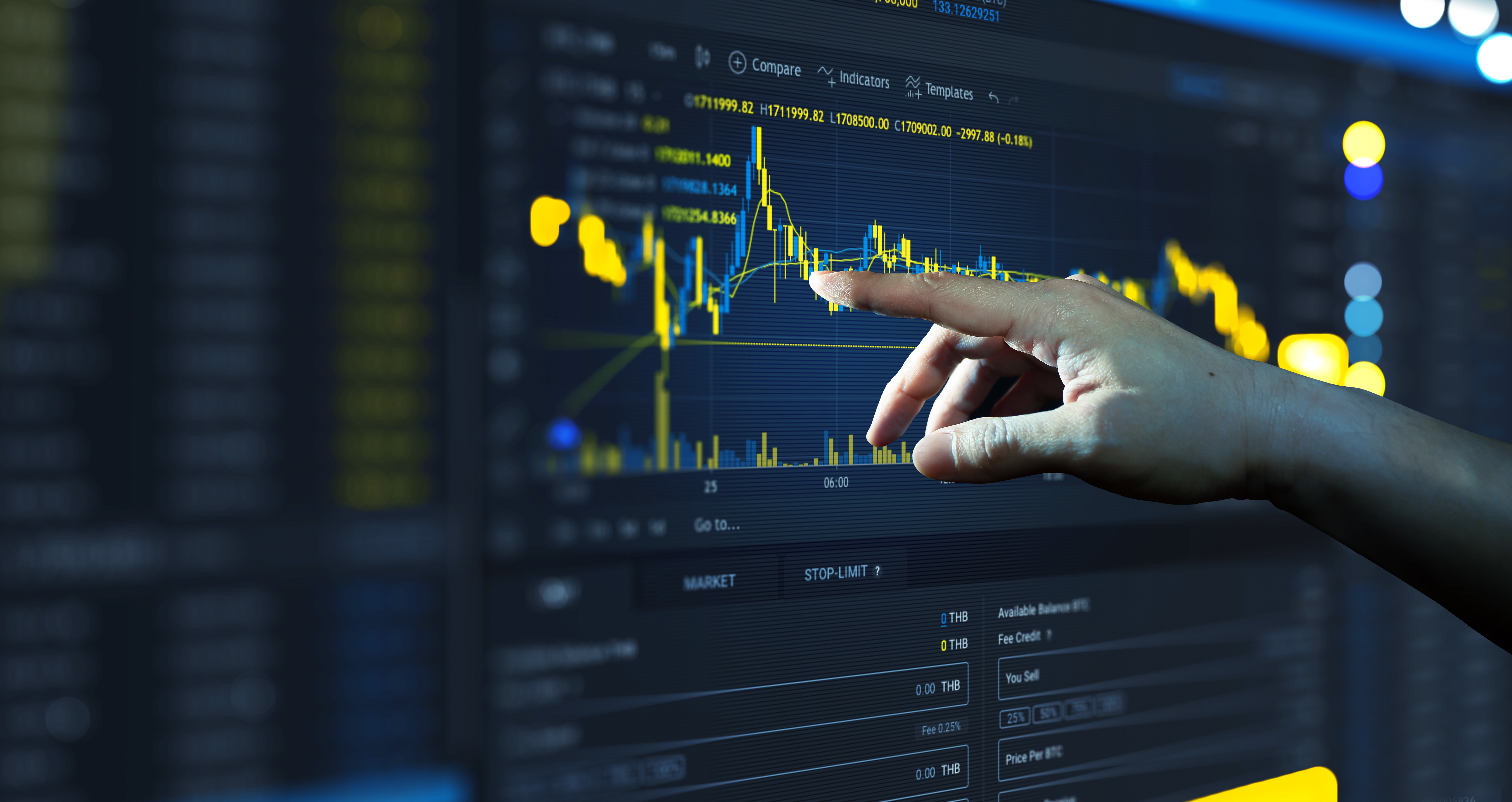*Updated March 2023!
Despite its popularity, some individuals question the legality of forex trading, mainly due to various scams and fraudulent activities associated with the industry. This article explores the legality of forex trading and examines the industry's prospects. We will also discuss the current regulatory environment surrounding forex trading, analyze the risks and benefits associated with the practice, and provide insights into the future of forex trading.
Is Forex Trading Legal?
Yes! Forex trading is legal in almost all countries worldwide, including the United States, the United Kingdom, Australia, Japan, etc. However, the regulatory environment surrounding forex trading varies from country to country.
For instance, forex trading is subject to regulations of the Financial Conduct Authority (FCA) in the UK, which has a tight regulatory framework similar to the CFTC and NFA in the United States.
Brokers operating in these jurisdictions must hold authorization from the NFA, CFTC, or FCA, which imposes strict requirements on handling client funds and disclosing risks associated with currency trading.
Similarly, forex brokers must be authorized and regulated by the financial regulator of other countries, such as ASIC in Australia, BaFin in Germany, and CySEC in Cyprus.
Although forex trading is legal in most countries, some countries have more restrictive regulations or outright bans. For example, currency trading is only legal through authorized brokers who are members of recognized exchanges in India. The same is the case with forex trading in China. Besides employing heavy regulations on currency trading, the Chinese government has banned offshore forex brokers from offering their services to Chinese citizens.

Who Are The Main Regulators Of The Forex Industry?
The forex industry is regulated by different entities worldwide, depending on the jurisdiction. Here are some of the primary regulatory authorities in the forex industry:
-
Commodity Futures Trading Commission (CFTC)
-
National Futures Association (NFA)
-
European Securities and Markets Authority (ESMA)
-
Bundesanstalt für Finanzdienstleistungsaufsicht (BaFin)
-
Financial Conduct Authority (FCA)
-
Financial Services Agency (FSA)
-
Japan Securities Dealers Association (JSDA)
-
Australian Securities and Investments Commission (ASIC)
-
The Investment Industry Regulatory Organization of Canada (IIROC)
-
Swiss Financial Market Supervisory Authority (FINMA)
-
Dubai Financial Services Authority (DFSA)
Why Does Forex Trading Need To Be Regulated?
Being one of the most liquid and volatile financial markets, it carries increased risk exposure and the potential for fraudulent activities, which is why it needs to be regulated. Here are some other reasons why currency trading should have regulations;
Traders' Safety: Forex market is open to potential fraudulent elements involved in malpractices. Regulation helps to ensure that traders have access to accurate information, fair trading conditions, and adequate protection from fraudulent activities.
Market's integrity: Forex trading is a global market that operates 24 hours a day, 5 days a week. This makes it vulnerable to manipulation, insider trading, and other forms of market abuse. Regulation ensures the integrity of the market and prevents such activities.
Transparency: Forex involves complex financial instruments and transactions that can be difficult for traders to understand. Regulations make brokers bound to employ transparent trading conditions and act in the best interest of traders.
Promoting fair competition: With many brokers and trading platforms competing for business, regulations help competition among market participants prevail, with no one dominating the market.
Overall, regulation is essential in protecting traders, maintaining market integrity, ensuring transparency, and promoting fair competition in the forex market. Without regulation, the forex market would be vulnerable to abuse, manipulation, and fraud, which could have significant negative consequences for traders and the broader financial system.
Global Regulatory Trends: Potential Impact on Forex Trading
Regulatory trends in the financial industry are constantly evolving, and the impact on forex trading can vary depending on the specific regulations being implemented. However, there are a few broad trends that are worth noting:
– Increased transparency and disclosure requirements:
There has been a recent uptick in efforts by regulators to increase disclosure requirements from the broker concerning the costs and risks involved in foreign exchange trading. This could include provisions for brokers to disclose more information about their pricing, execution policies, and any conflicts of interest.
– Stricter capital requirements:
To ensure that forex brokers can survive market volatility and preserve client cash, regulators may mandate them to keep higher capital levels. This can reduce the number of brokers available or drive up trading costs.
– Greater oversight and enforcement:
Authorities anticipate using state-of-the-art technology to monitor forex markets for any signs of manipulation or misconduct. This could lead to more enforcement actions against brokers and traders who engage in illegal or unethical practices.
Not to mention, some forex brokers opt for low-cost solutions for registering their companies and gaining access to the market. They typically prefer offshore jurisdictions such as St. Vincent & the Grenadines, Vanuatu, and Seychelles, which offer low registration formalities and a flexible regulatory framework. However, this regulatory trend also appears to be changing.
Due to the dramatic increase in the frequency and number of complaints and allegations of fraud against companies registered in these jurisdictions, the concerned authorities also have decided to tighten industry regulations and adopt a strict policy for newcomers.
Regulatory trends will likely have positive and negative impacts on forex trading. On the one hand, greater transparency and oversight could help to build trust in the market and protect investors. On the other hand, stricter requirements could increase costs and limit access to trading for some market participants.
What Are The Latest Developments Concerning Forex Regulations?
Here are some of the recent regulatory developments in the forex market.
-
In the United States, the CFTC has been increasing its focus on the retail Forex market to protect investors. In March 2021, the CFTC issued new guidelines on virtual currency trading and launched a new online portal to help investors report suspicious activity related to forex and virtual currency trading.
-
In the European Union, new regulations under the Markets in Financial Instruments Directive (MiFID II) came into effect in January 2018. These regulations require greater transparency in forex trading and set stricter rules on forex brokers, including disclosure of trading data and fees.
-
In Australia, the ASIC has recently increased its focus on the forex market. In 2019, the ASIC introduced new regulations requiring forex brokers to provide negative balance protection to their clients, which means that clients cannot lose more than their account balance in the event of market volatility.
-
In the United Kingdom, the FCA also introduced new guidelines in 2018 to improve the transparency and fairness of forex trading for retail investors. These rules include limiting leverage for retail investors and requiring forex brokers to disclose more information on their pricing and execution policies.
While China and India continue to employ rigid regulatory outlooks on forex trading in Asia, countries like Japan and Singapore have more liberal regulatory environments for the forex market.

Emerging Technologies: Potential Disruption to Forex Trading
Emerging technologies can potentially disrupt many industries, and forex trading is no exception. Here are some technologies that could have a significant impact on Forex trading:
-
Artificial Intelligence (AI): AI-powered trading algorithms have already been widely adopted by Forex traders. These algorithms can analyze large amounts of data and make trades based on patterns and trends that humans may be unable to identify. AI could become even more advanced in the future, leading to more automated trading and greater efficiency in the forex market.
-
Blockchain Technology: Blockchain technology is a decentralized ledger system that records transactions securely and transparently. In the forex market, blockchain technology could help streamline the settlement process, reduce counterparty risk, and increase transparency.
-
Quantum Computing: Quantum computing has the potential to revolutionize computing power and speed, which could lead to more accurate and efficient currency trading. With the ability to process massive amounts of data in a fraction of the time it takes traditional computers, quantum computing could enable traders to make more informed decisions and execute trades faster.
-
Internet of Things (IoT): It refers to the interconnected network of devices and sensors used to collect and transmit data. In the forex market, IoT devices may help to gather real-time data on economic indicators, such as inflation and employment, and provide traders with more timely and accurate information.
Emerging technologies can potentially disrupt forex trading in various ways, from increasing efficiency and transparency to enabling more automated and accurate trading. However, there are also potential risks associated with these technologies, such as increased complexity and the potential for cyber attacks. As with any disruptive technology, it will be necessary for the forex industry to adapt and evolve to stay ahead of the curve.
Will Forex Trading Be Illegal In the Future?
It is hard to predict whether forex trading will become illegal. While most retail traders lose money, proponents of the ban argue that the market should be treated like a casino. A lot of frauds have sprung up recently, making matters worse. If the government bans citizens from trading on the foreign exchange market, it might eliminate many issues.
However, it is highly unlikely that forex trading will become entirely illegal, given its significant role in the global economy. Forex trading is vital to international trade, where currencies are bought and sold to facilitate cross-border transactions. Additionally, forex trading provides a source of income for traders, brokers, and financial institutions worldwide.
While some countries may choose to regulate forex trading more strictly, outlawing it entirely is unlikely. Here are some real-world scenarios to help explain why we do not think that forex trading will become completely illegal:
-
Importance in International Trade: Forex trading is crucial in facilitating international trade. For example, when a US company exports goods to a company in the UK, the transaction is denominated in US dollars and British pounds. Forex trading allows businesses to convert their currencies quickly and efficiently, reducing the risk of currency fluctuations impacting their profits. Banning forex trading could negatively impact global trade and the economy as a whole.
-
Source of Income: Forex trading is a source of income for traders, brokers, and financial institutions worldwide. A ban on forex trading could result in job losses and economic instability. Additionally, the forex market provides liquidity to financial markets, and prohibiting it could decrease market efficiency.
-
Government Regulation: Rather than banning forex trading altogether, governments may choose to regulate the industry more strictly to protect consumers and prevent fraudulent activity. For example, some countries require forex brokers to be licensed and registered with regulatory bodies to ensure they adhere to certain standards and guidelines.
-
Legal Precedent: Forex trading has been legal for decades and is recognized as a legitimate financial activity by most countries worldwide. Therefore, any attempt to ban forex trading would require a significant legal challenge and may be difficult to enforce.
Preparing for Regulatory Changes: Strategies for Traders
With increasing regulatory changes in the forex trading industry, traders must be prepared to adapt to new requirements and guidelines. Here are some strategies traders can use to prepare for regulatory changes:
-
Stay Up-to-Date: Traders must stay informed about regulatory changes and new guidelines. Regularly checking the regulatory bodies' websites, following industry news, and attending seminars or webinars can help traders stay abreast of the market.
-
Understand the New Requirements: It is crucial to understand the new requirements and how they will impact your trading strategy. This may involve changes in risk management strategies, new trading rules, or new compliance procedures.
-
Check Your Broker's Compliance: Ensure your broker complies with the new regulations. You can do this by checking their license, registration, and any other requirements imposed by regulatory bodies.
-
Use Reputable Brokers: Prefer to sign up with reputable brokerage firms. Reputable brokers are usually licensed and regulated by the relevant authorities and adhere to industry standards and guidelines.
-
Implement Strong Risk Management Strategies: With increased regulation, traders must implement robust risk management strategies to protect their trading activities. This may include using stop-loss orders, diversifying your portfolio, and avoiding high-risk trades.
-
Seek Professional Advice: Seeking advice from a professional financial advisor or trading expert can help traders navigate regulatory changes and adapt their strategies to remain compliant.
Final Thoughts
While authorities are becoming more concerned about ensuring more transparency in the currency market and protecting investors' interests, traders must remain vigilant about regulatory changes and take steps to ensure their trading activities remain compliant. By using reputable brokers, implementing strong risk management strategies, and seeking professional advice, traders can adapt to new regulations and continue to trade successfully.

Frequently Asked Questions (FAQs)
Below are frequently asked questions for further information and clarity on the forex regulatory outlook.
1) Is forex trading currently legal worldwide?
Forex trading is generally legal in most countries worldwide. However, some countries may restrict forex trading activities or limit access to foreign brokers.
2) What factors could lead to forex trading becoming illegal?
Factors that could lead to illegal forex trading include severe economic crises, political instability, or fraud and scams within the industry.
3) Can forex trading be banned altogether?
While it's theoretically possible to ban forex trading altogether, it's unlikely to happen. Forex trading is a critical component of the global economy and facilitates international trade.
4) What steps can traders take to prepare for regulatory changes?
Traders may prepare for regulatory changes by keeping up with the latest industry news and rules, learning about new regulations, working with trustworthy brokers, putting adequate risk management measures in place, and consulting with experts.
5) How would a ban on forex trading affect traders and the economy?
A ban on forex trading would significantly impact traders and the global economy. It could lead to decreased liquidity in the forex market, loss of income for traders and financial institutions, and decreased international trade.
6) Why do some countries restrict forex trading?
Some countries may restrict forex trading due to concerns about financial stability, money laundering, fraud, or protecting investors from risky investments.
7) Will traders be able to continue trading if forex becomes illegal in their country?
If forex trading becomes illegal in a trader's country, they may be able to continue trading through foreign brokers or by moving to a jurisdiction where forex trading is legal.
8) Can we predict the future of forex trading regulation?
While it's impossible to predict the future of forex trading regulation with certainty, traders can stay informed about industry news and regulatory changes to anticipate potential shifts in the regulatory landscape.

